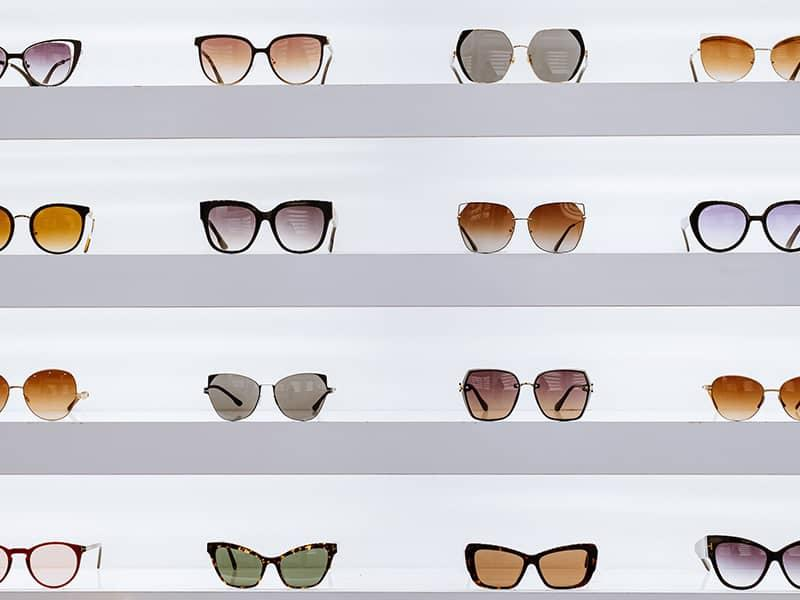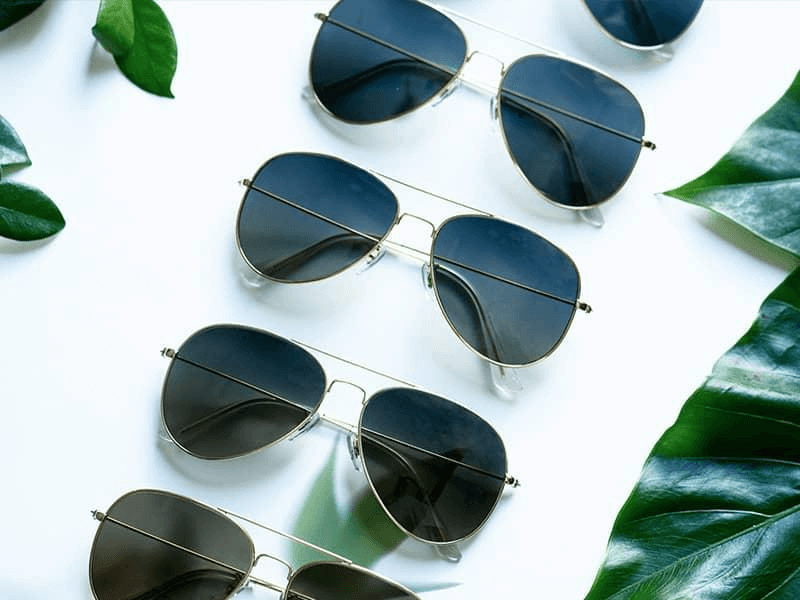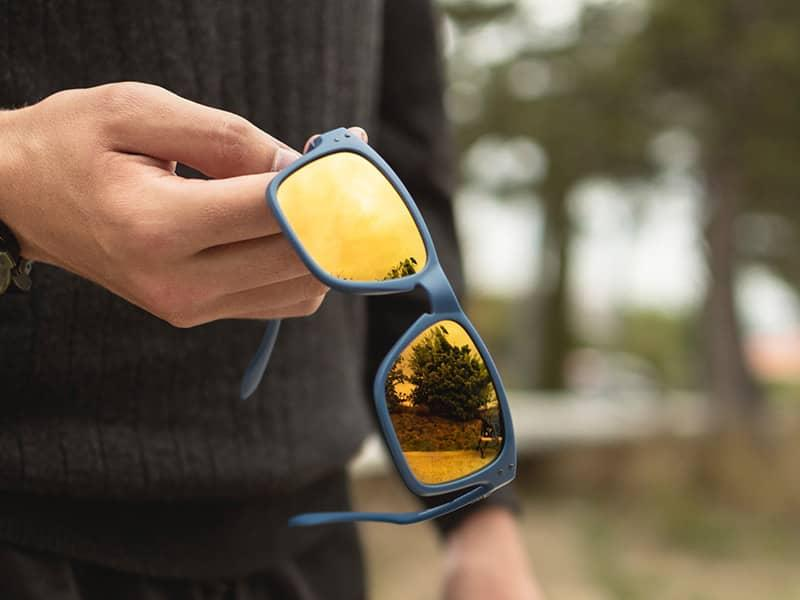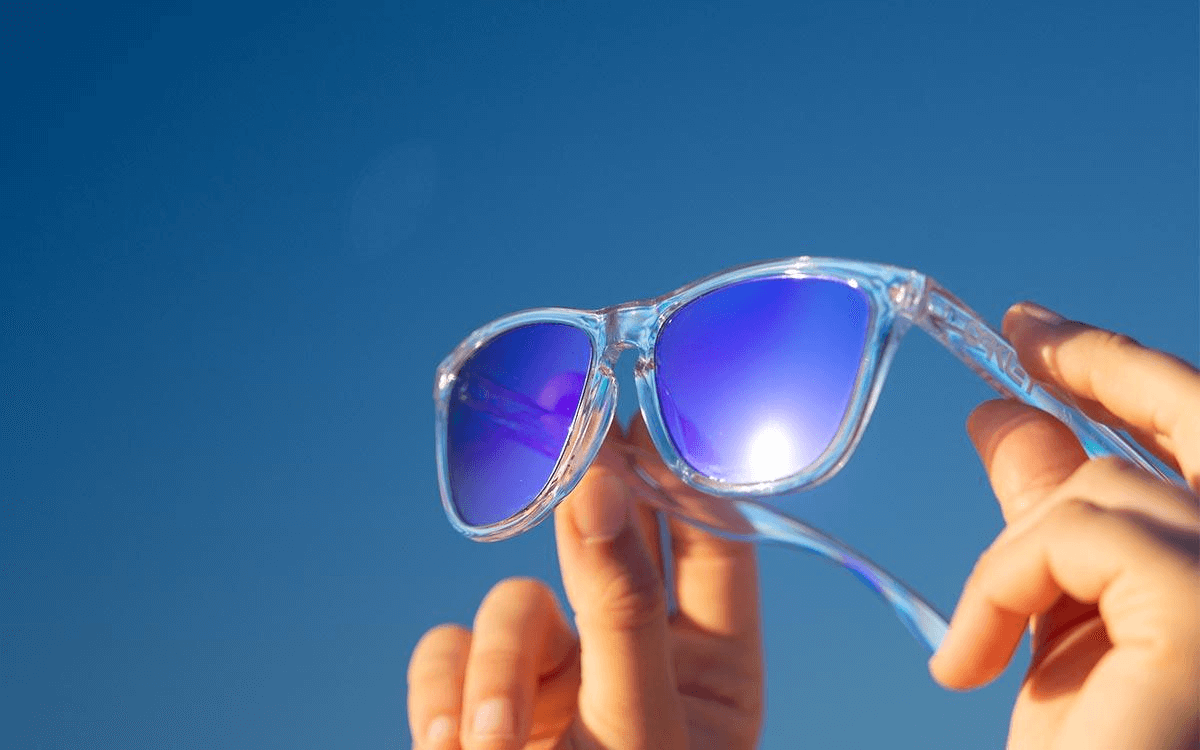Sunglasses are a great way to protect your eyes from the sun's harmful ultraviolet (UV) rays. But to get the most out of your sunglasses, you need to choose the best lens material for your type of sunglasses. Different materials have different benefits, so it's imperative to understand the different types of lenses and what they can offer.
What are the Different Types of Sunglass Lens Materials?
Polyamide
Polyamide is the premium option for sunglass lens material and Sunglass Fix lens of choice. Even though it is the most expensive compared to glass, it has nearly the same optical clarity, it is shatterproof and it’s flexible enough to self install into sunglasses.
Glass
Glass is one of the best sunglass lens materials. It refracts light more efficiently than other alternatives, such as plastic, and offers an incredible optical experience. It is also the most scratch resistant and effectively filters UV light than other materials. While it is the best lens material for sunglasses, glass is heavier, costlier, and prone to cracking.
Polycarbonate
This sunglass lens material provides optimal impact resistance and excellent optical clarity. This has made polycarbonate the standard material for safety, sports, and children's eyewear. Polarized polycarbonate lenses are lightweight and affordable but less scratch- resistant.
AC Lenses
Acrylic lenses are a cheaper alternative to polycarbonate. These types of sunglass lens material are designed for your occasional or casual use of sunglasses. They are optically less clear than glass and polycarbonate lenses and have some image distortion.
CR-39
An abbreviation for Columbia Resin #39 CR-39, sunglass lenses have gained massive traction since their introduction in 1947. They are affordable, boast excellent optical clarity, are more resistant to radiation, aging, material fatigue, and chemicals, and are not likely to shutter. CR 39 polarized lenses are also lighter and easy to tint.
Factors to Consider When Choosing Sunglass Lens Material
Wearability
Size is a crucial factor when choosing the best lens material for sunglasses. Generally, sunglasses with more coverage material guarantees higher protection from UV light. When choosing oversize or wraparound lenses, remember to keep comfort in mind. When you find the perfect fit, you can confidently wear your sunglasses for work or sports in the sun for long hours.

Durability
Durability and quality factors go hand in hand. Generally, two years is considered the best time to replace your sunglasses if you want to keep safe from UV light exposure. While they might come at a higher cost, quality sunglasses are effective, scratch resistant, and long-lasting.
Comfort
Finding the best sunglass material means choosing the one that fits comfortably and is perfect for your face shape. You want to opt for a lens material that caters to your needs. For instance, yours might be a lifestyle that demands more contrast or high outdoor protection, so you want a sunglass lens material that suits your needs.
Lens Color
Lenses come in numerous color options, including solid tints and gradient colors like brown, gray, or green. While color does not play a role in UV protection, it impacts visual contrasts. Some colors are known to improve contrasts, making them perfect options for athletes among other players engaging in sports such as swimming, golf, and baseball.

Lens Quality
Another crucial factor to consider is choosing the best sunglass lens material. The quality and tint are the key, so you should go for lenses with uniform tint rather than dark ones. Before purchasing, hold your lenses at arm's length in a straight line to check out imperfections. Move the lenses slowly along the straight line. If the lenses have a defect, the straight edge will sway, move, distort, or move. After all, low-quality sunglass lenses offer little to no protection from UV and are as good as wearing no sunglasses at all.
Sunglass Fix Lenses
At Sunglass Fix, we are a pioneer and global leader in premium quality sunglass lens replacement in the market. Some of our lenses include:
Bio-Polyamide
At Sunglass Fix, environmental sustainability is the center of everything we do. We go above and beyond to provide optical excellence and a reduced carbon footprint. Our top-quality Diamond-Bio sunglass material lenses are made from high-grade optical polyamide featuring 44% bio-based materials from renewable, climate-friendly sources. We utilize the best Japanese Polarization technology and top-class anti-reflective coatings to minimize glare and an incredibly tough hard coat for scratch prevention.

Polyamide
This is one of the most durable and incredibly lightweight sunglass lenses on the market. Our SFx Ultra range boasts a perfect integration of Japanese polarized film and an excellent efficacy rating. This makes this sunglass lens material one of the best anti-glare options available. They come in a wide range of gradients and tints and can perfectly incorporate both solid and flash mirroring.
Polycarbonate
These lenses are lightweight, safe, and durable, with excellent HD performance. These sunglass lens materials feature a protective layer for scratch, water, and sweat resistance. Our polycarbonate SFx Edge lenses are made from a special flexible polymer with excellent optical clarity. They are safe and easy to install and will rarely shatter.
Anti-Scratch Coatings
All lenses from Sunglass Fix are coated with a tough external coating to make them oil-repellant and scratch resistant. Our scratch protection boasts up to 40 percent more abrasion resistance, outshining most alternatives in the market. This coating has taken the scratch resistance on our Diamond-Bio range to a new level.

Polarization
Japanese polarization technology is hailed as the best you can get. The lenses at Sunglass Fix are made from one of the most recognized Japanese polarization films boasting a high 99.9% efficacy rating. The glare reduction offered by such sunglass lens material reduces eye strain, and you can show off your sunglasses for longer.

Mirrors and Anti-Reflective Coatings
Generally, anti-reflective coatings are effective in reducing reflective light. If you want to invest in the best, most durable, and most reliable sunglasses lenses, this is the option for you. Sunglass lenses with anti-reflective coating allow more light to pass through rather than bounce off the lenses. With proper care and maintenance, your anti-reflective lens coating can last up to two years.








